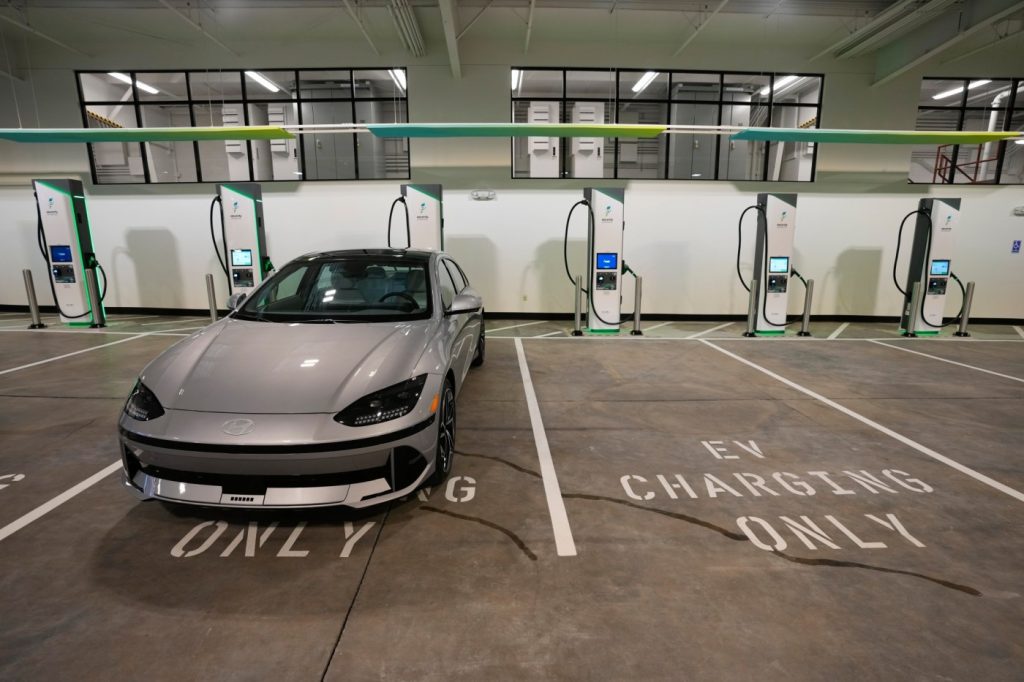According to the January issue of “Consumer Reports,” owners of electric vehicles (EVs) have experienced 80% more problems than owners of gas-powered cars (“Who Makes the Most Reliable Cars?”). Recent headlines noted increased owner complaints about reliability, limited charging stations and other unique problems with EVs. Sales are strong, but not as strong as they were a year or two ago.
All of which has led some industry observers to conclude that electric vehicles are a failed technology, doomed to disappear like many other overhyped innovations. Are EVs the new 3D TVs?
We believe the reports of EVs’ demise have been greatly exaggerated. The complaints may be legitimate, but we need to keep them in perspective. EVs have been around for a long time, but are not mass produced. Sales of EVs exceeded 1 million for the first time in 2023 (up from only 320,000 in 2020). That’s impressive, but it is roughly equivalent to where the internal combustion-powered car was in 1913 — before what we now consider the Age of the Automobile.
Cars in 1913 were not without complaints, either. They were unreliable, slow, uncomfortable and generally came in only one color. The first drive-up gas station in the country had just opened in Pittsburgh. Repair shops were hard to find, as were paved roads.
You could get windshield wipers and headlights on your car in 1913, but not a radio, air conditioning or power steering, each of which were still more than a decade away.
In 1913, automobiles were simply not a mature technology. They worked reasonably well if you were rich, but mass-produced consumer cars were still in their infancy. American society also lacked the infrastructure and support systems that a car-based society would need. Yet, within 20 years, the automobile had completely transformed American society.
Like conventional cars in 1913, EVs in 2024, while not yet mature, are maturing rapidly. We see improvements in every area of concern, from reliability to charging times and increased range. There is no reason to believe these positive trends won’t continue.
Just as America needed the federal government to pave the nation’s roads in the 1910s, our government has a role to play today, building the infrastructure needed to accommodate the next million EVs. We need more — and faster — charging stations. We need a strengthened electrical grid and increased research for better and cheaper batteries. We also need a network of repair shops and scrap yards that can handle and recycle EV components. Some of these needs have been addressed in legislation, such as the Inflation Reduction Act, but more help will be required.
The process we are going through with EVs is not fundamentally different from the process we went through with cars, TVs, computers and cell phones. New technology takes time to mature. Society needs time to adjust and adapt to those new technologies. And the government has a role in encouraging both.
Related Articles
Intel, Amazon, Kaiser, EV charging firm chop hundreds of Bay Area tech jobs
Big rigs in California are getting cleaner — but can long-range targets for trucks be met?
Elon Musk fires the team building Tesla’s EV charging network
Millions of semi-trucks on U.S. roads still rely on fossil fuels. Cutting-edge EV tech at a Gilroy site could change that.
Joby Aviation breaks ground on expanded Monterey County production line
EV technology is revolutionary. They are not simply gas-burning cars with batteries — they are an entirely new technology. As with all new technologies, there will be bumps in the road to universal adoption. That road, however, is worth driving down. Over time, and as the EV manufacturers continually improve reliability, safety and infrastructure, we are very confident that concerns about electric vehicles will subside as they did with conventional cars.
Change takes time, but America’s technology innovators fully expect EVs to live up to their potential: reducing carbon emissions while revolutionizing both automotive technology and American society.
Tom Coughlin is president of technical professional organization IEEE. Keith Moore is president of IEEE-USA.


